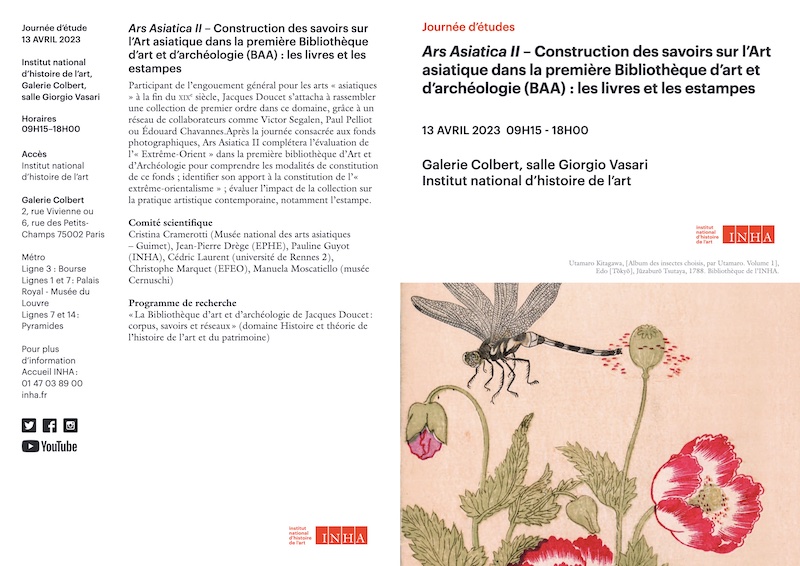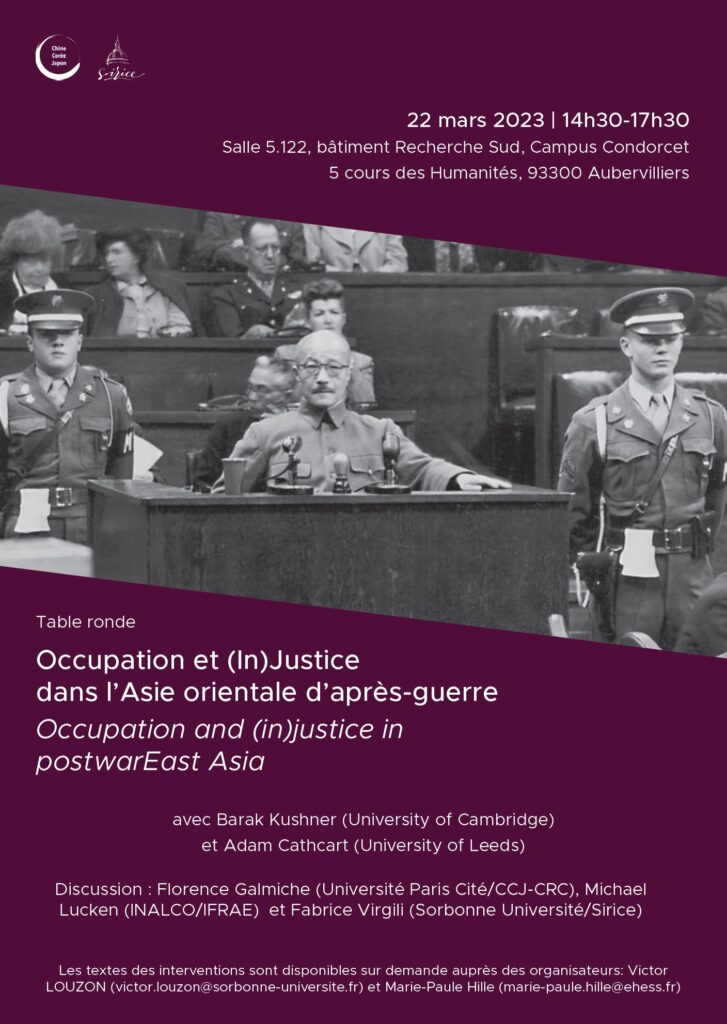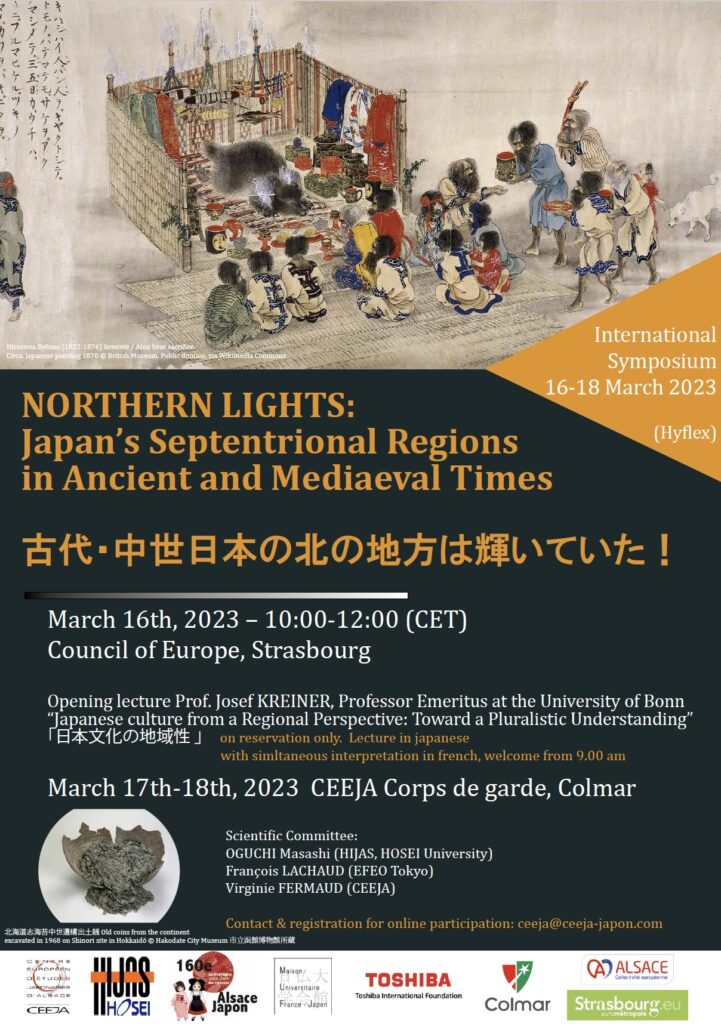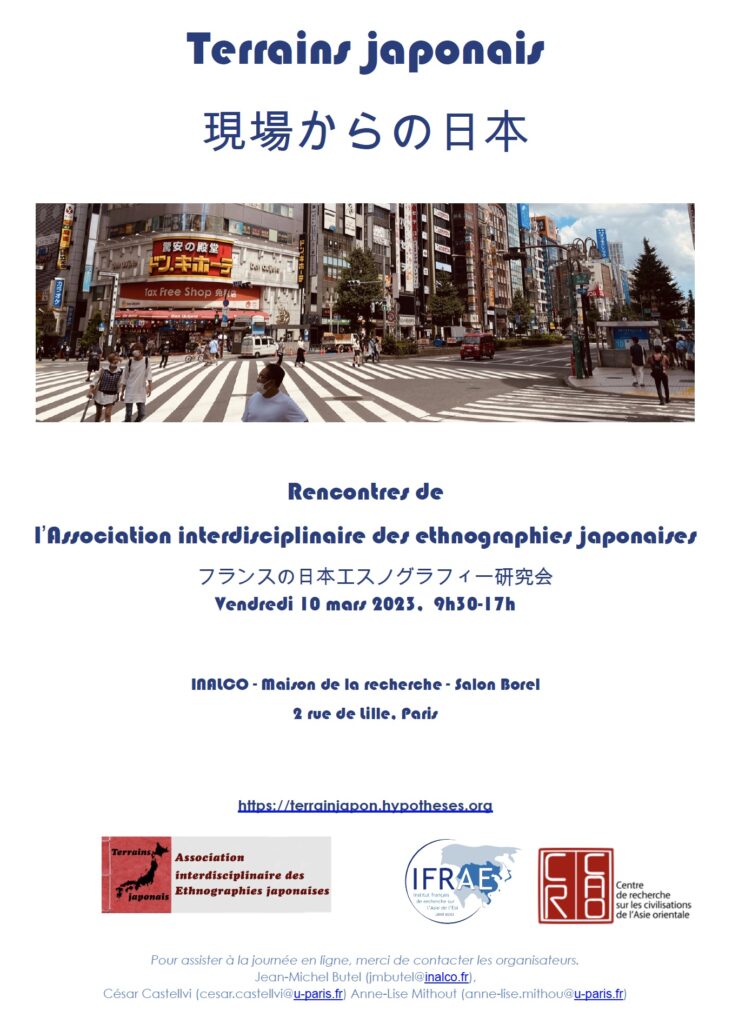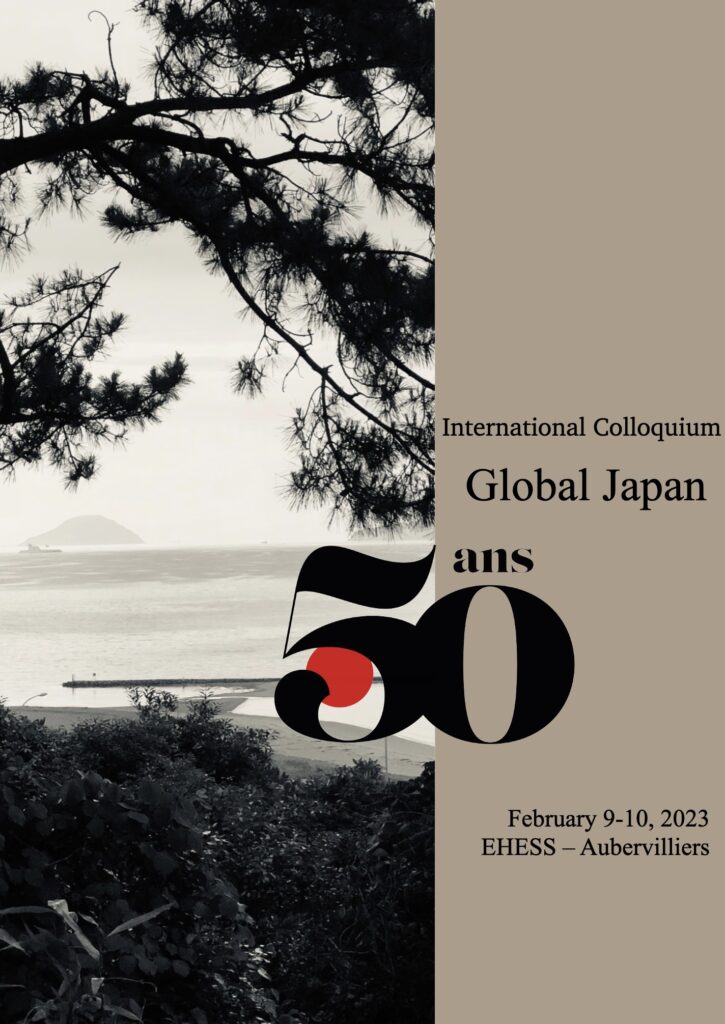Le RELiJaM (Réseau français des études sur la littérature japonaise moderne) organise les 17 et 18 mars 2023 deux journées de recherche en lien avec la littérature japonaise moderne. Les deux journées auront lieu en hybride et vous pourrez obtenir les liens de connexion en envoyant un mail aux adresses indiquées ci-dessous. Attention : il y a deux liens différents pour les deux journées.
Pour obtenir le lien Zoom :
Programme du 17 mars 2023
À l’Université Paris Cité, 10h-16h30 : journée doctorale et post-doctorale, suivie des interventions de Hibi Yoshitaka (U. Nagoya) et de Kawasaki Kenko (U. Rikkyō et U. Tsinghua).
Matin
Noya DALEM (INALCO, IFRAE) : « L’hétérolinguisme japonophone : une étude des rapports entre langues dans la littérature contemporaine »
Adélaïde MANGON (INALCO, IFRAE) : « Qu’est-ce qu’un écrivain-traducteur ? – Enjeux et méthodologie pour l’étude de la traduction par les écrivains dans la littérature japonaise contemporaine »
Prune THIRY (Université Jean Moulin-Lyon 3) : « Le marais de la mémoire dans Cristallisation secrète d’Ogawa Yōko »
Nina LE FLOHIC (Université Bordeaux-Montaigne) : « Medoruma Shun, un écrivain à la croisée des chemins. Mémoire(s) de la Seconde Guerre mondiale, identité(s) et universalisme dans l’oeuvre de l’auteur okinawaïen »
Éric DUMONT (INALCO, IFRAE) : « Adaptations, créations et expérimentations : à propos des drames poétiques de Terayama Shūji avant la fondation du Tenjō sajiki »
Après-midi
Macha SPOEHRLE (Université de Genève, FNS) : « La suite de tanka (rensaku) chez Orikuchi Shinobu (Shaku Chōkū) : pratique et théorie
Agathe TRAN (CRCAO) : Une approche poétique du visuel dans l’oeuvre de Natsume Sōseki
Benjamin GIROUX (INALCO, IFRAE) : Les prix littéraires japonais font leur cinéma – Analyse en miroir de Bungakushō satsujin jiken (1989, d’après Tsutsui Yasutaka, 1979) et HIBIKI (2018, d’après Yanamoto Mitsuharu)
Programme du 18 mars 2023
À l’Inalco, 10h-18h : journée d’études internationale « 2023, actualités de la recherche internationale sur la littérature japonaise moderne »; la journée sera entièrement en japonais.
Matin
Hibi Yoshitaka : Humanités numériques et recherches sur la littérature moderne japonaise – à partir des travaux sur la circulation des livres「デジタル・ヒューマニティーズと日本近代文学研究――書物流通研究から出発して」
Kawasaki Kenko : Actualités et perspectives de la recherche sur la « littérature populaire » (de l’occupation américaine à la période de la guerre froide, de Hisao Jûran à Matsumoto Seichô) 「戦後GHQ占領期から冷戦期にかけての「大衆文学」研究の現状と課題(久生十蘭から松本清張まで)」
Amano Chisa (U. Kyôto Kyôiku) : La littérature japonaise après l’occupation américaine – comment penser les croisements entre littérature et politique internationale ?「ポストGHQ占領期における日本文学――国際政治と文学の接点をどう考えるか?」
Après-midi
Gérald Peloux (CY Cergy Paris Université) : Interroger le périmètre de la littérature japonaise moderne「日本近現代文学の範囲を問う」
Thomas Garcin (U. Paris Cité) : Pourquoi Mishima n’a-t-il pas rencontré Barthes ? La réception de Mishima en France「なぜ三島の文学はバルト的分析の対象にならなかったのか、フランスにおける三島受容」
Dan Fujiwara (U. Toulouse) : La recherche sur la littérature transfrontalière en langue japonaise – perspectives etpossibilités 「日本語越境文学研究の視野と可能性」
16h30-17h Cécile Sakai (U. Paris Cité) : La traduction au carrefour de la recherche sur la littérature japonaise à l’étranger「文学研究と翻訳の接点、外的アプローチ」
Anne Bayard-Sakai (INALCO) : Devant de nouveaux « objets », que peut faire la recherche littéraire ? 「新しい〈対象〉を前に、文学研究は何ができるのか」
PROGRAMME COMPLET SUR CE LIEN.
